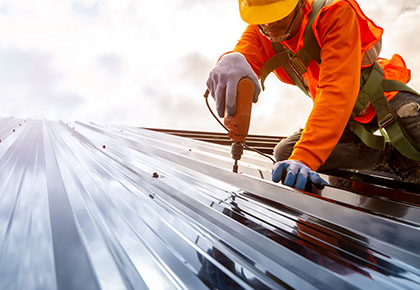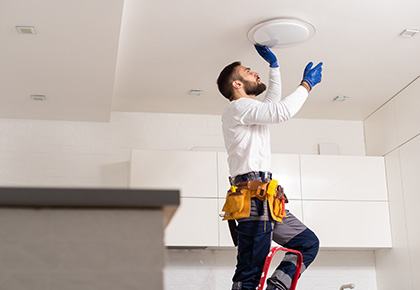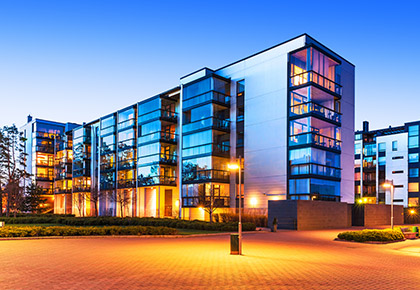-
-

Capital improvements vs repairs and maintenance: What’s the difference?
Maintaining your buildings’ assets is not a one-size-fits-all proposition. The common areas require a broad range of routine maintenance and repairs to keep them looking good and operating smoothly. -
Tips for community waste management in your association
With a growing focus on proper environmental stewardship, many associations are working toward implementing green initiatives. But getting there can be daunting. With so many programs and opportunities available for all of us to reduce, re-use and recycle, it’s hard to know where to begin. -
9 tips about board of directors conflicts of interest
It’s a term that gets tossed around quite a lot. But “conflict of interest” is a real and genuine threat to your association and its proper stewardship. Understanding what the term means – as well as how to recognize and avoid conflicts of interest– can go a long way toward ensuring the strength and stability of your community and eliminating many concerns. -
FirstService Residential Executive Discusses Offbeat Second Home Investment Locations and Trends
While exclusive communities like the Hamptons or Malibu will always be attractive locations for affluent vacation home buyers, several new trends are emerging in the growing second home market. -
Put an Energy Saving Program Together for a Multifamily Property
Many HOAs and community associations would like to save energy and energy spending, but they think that putting an energy management plan into place for their multifamily property is difficult to accomplish. FS Energy's Chris Normandeau explains some basic, easy-to-do steps that can make a real impact on an association's energy usage and budget. -
Hiring a reserve study company: Five things to know
In our guide to capital improvements , reserve studies and their relationship to capital improvements and preventive maintenance were discussed at length. -
Seven tips to finding a reserve study company
Your reserve fund is what helps your association anticipate its future– and budget for it, too. This fund gives you the power to maintain the quality of your community by allowing for projects that are both necessary and expensive (like a future roofing or paving project, for instance). -

5 energy conservation strategies for community associations
In this article, we delve into the significance of energy conservation within community associations, exploring its benefits and strategies for effective implementation. -
Energy efficiency tips for winter
So what can condo boards or community associations do to mitigate or even reduce costs this winter? Let’s start with what you can do in the summer and fall, before winter actually begins. This includes cleaning, tuning and performing any necessary repairs to heating systems, furnaces and boilers to make sure they won’t be working longer, harder or less efficiently than they should. Other pre-winter tasks include cleaning gutters to remove leaves and debris to ensure water can flow freely. Otherwise, water can become trapped and freeze, which can not only damage your property’s gutters, but also cause ice dams and possible roof leaks. -

What to know about condo EV charging
If your high-rise condo is ready to start looking into electric vehicle charging stations, these steps can provide a holistic overview of the process and what you can expect. -

Can HOA fees increase? The benefits of raising HOA dues
What exactly are HOA dues, and can an HOA raise dues without notice? In this article, we’ll explain what HOA dues are, HOA fee increase limits, and five benefits of small, regular increases. -
Starting a neighborhood watch program? Understanding neighborhood watch rules and duties
Neighborhood Watch programs can provide significant benefits to communities – after all, they boost community awareness, communication and involvement, while reducing opportunities for neighborhood crimes to occur. But if you’re interested in getting started, there are many important factors to consider. Here’s an overview. -
Surprising ways to stretch your HOA's dollars
If you’re on the board of a condo, co-op, high-rise or HOA, you know that managing your community’s budget is a major priority. You’ve likely explored many ways to save money and get the best deals, while still maintaining a high level of service. -
Tips for an eco-friendly building: Sustainable high-rise living
Many multifamily properties and high-rises want to implement “green” living practices and create eco-friendly communities, but not everyone knows where nor how to get started. Here are some effective and easy tips to help you be proactive and successful in achieving your sustainability goals. Read on for a list of programs and services that can be put in place in your community at little to no cost. -
Mortgage loan tips: Preparing and applying for a mortgage
We’ve got the scoop on how to get a mortgage loan, so read on for our top six tips to increase your chances. -
How to start a recycling program in your community
Is your homeowners association considering starting a recycling program for your community? If so, bravo! Take a look at some of the benefits: conserving energy, saving water, preserving resources, reducing air pollution and saving landfill space. And did you know that in addition to helping the environment, recycling can also provide economic benefits as well? To get you started, here are some tips and considerations to help your association plan and implement a successful recycling program for your community. -

Empowering Communities: Maximizing efficiency through energy audits
Energy audits serve as a critical tool for identifying inefficiencies, pinpointing areas of improvement, and ultimately fostering a more sustainable environment within community associations. -

5 ways to reduce energy costs in your condo or coop
No matter where your high-rise building is located, rising energy costs can have a drastic impact on your community association’s budget. Implementing methods to conserve energy can help your association reduce energy costs and optimize your high-rise’s annual budget. -
What is an HOA fee and what do HOA fees cover?
Congratulations! You just bought a new home and it’s perfect for your family – just the right size, condition, location and neighborhood to meet your needs. Your new home is part of a homeowners’ association (HOA), which means you will pay HOA fees. What is an HOA fee? What do they pay for? -
What is an HOA balance sheet, and how do you read it?
The chief responsibility of a community association board member is to preserve, protect and enhance the community. That includes, above all else, its financial health. But you can’t affect the financial health of your community if you don’t understand where it is when you join the board. Balance sheets are the best tool for gaining that basic understanding. -
A guide to planning your association budget
Read on for more about how to best complete your next annual association budget, a budget that will enhance your property values and improve your residents’ lives. -
HOA lawsuit: Why community associations get sued and what to do if it happens to you
Your community or condominium association is there to protect the interests of all of its members. However, there may be situations when one or more residents don’t believe that the association is on their side. Hopefully, everyone involved can come to a reasonable solution, but if you can’t, it’s possible that your association – and even your board members – could become the target of a lawsuit. -
Why your association needs an annual insurance review
You know that your association needs to have the right insurance coverage in place. So you have property coverage, liability insurance, workers’ compensation, directors and officers (D&O) and an umbrella policy in place. Premiums are paid regularly and on time. Did you know that’s not enough?